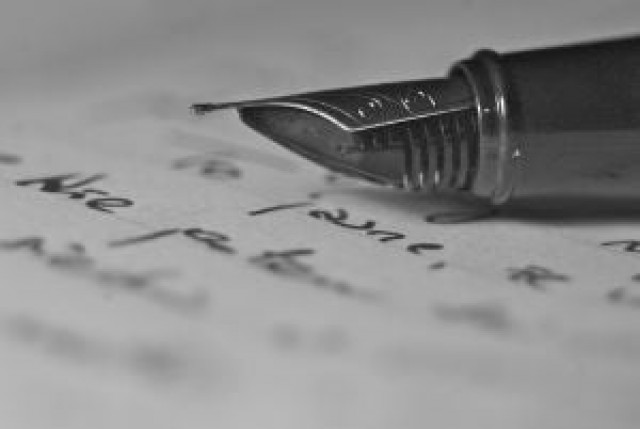Baad-e-Khyber: Fresh compilation of Hamza Baba’s poetry showcases Urdu work
Also features ghazal presented during a session in Bombay pre-partition.

The previously unpublished manuscript on Urdu and Persian poetry has been recently compiled by Kaleem Shinwari and published by Peshawar Adabi Jirga.
The previously unpublished manuscript on Urdu and Persian poetry has been recently compiled by Kaleem Shinwari and published by Peshawar Adabi Jirga.
Hamza Shinwari emerged after classical Pushto poets such as Khushal Khan Khattak, Rehman Baba, Hameed Baba, Kazim Khan Sheda and Ali Khan – and has become a link between classical and modern Pushto literature.

Commenting on the newly-published book, Tahir Bukhari, a famous poet, expressed interest on how a man, without much education, could write poetry in Urdu and Persians that is comparable to the poetry of classical Urdu and Persian poets.
Although every Pukhtun will remember at least one of Hamza Baba’s 30,000 Pushto couplets, available in four volumes, most people are not familiar with his Urdu and Persian poetry, which he wrote at the beginning of his career.
Kaleem Shinwari, nephew of Hamza Baba, is a well-known Pushto poet and researcher who has penned several books including Ghunchak, a book based on Hamza Baba’s works. “My aim was to collect the unpublished works of Hamza Baba which are still scattered around,” Kaleem Shinwari said.
Shinwari said Pukhtuns are not very familiar with Hamza Baba’s work in Urdu and hopes the book will be helpful in providing an insight into his Urdu literature. The book comprises 54 Urdu poems, 16 quatrains and three Persian poems. It also contains poems in the form of dialogues.
In addition, Baad-e-Khyber contains ‘Hum Inqilaab-e-Shaam-o-Sahr Dekhte Rahay’, a ghazal Hamza Baba presented during a poetry session attended by famous classical Urdu poets in Bombay in 1941.
The literature, interviews, and articles gathered in Ghunchak show Hamza Baba was more interested in Urdu poetry. Hamza Baba started writing poetry in Pushto on the orders of his murshid, Syed Abdul Sitar.
Amir Hamza Khan Shinwari was more interested in Urdu poetry since most famous poets and intellectuals were associated with Urdu literature and there were not many Pushto poets and intellectuals present at the time.
Kaleem Shinwari said Hamza Baba has always represented Pukhtun traditions, civilization and environment – even in his Urdu poetry. “Baba will have some 50 publications to his name if we collect all his work and publish it,” he said.
Published in The Express Tribune, November 1st, 2013.













COMMENTS
Comments are moderated and generally will be posted if they are on-topic and not abusive.
For more information, please see our Comments FAQ